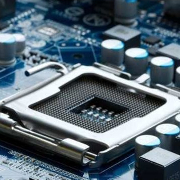What is RF PCB & Microwave PCB?
RF PCB and microwave PCB are a type of printed circuit boards which carry the RF or microwave signal. So, these types of PCBs usually work on megahertz to gigahertz frequency ranges. Hence, we use these frequency ranges in communication technologies from mobile phones to military radars.
sales12@hitechpcb.com
The materials used are advanced composites with very specific characteristics for dielectric constant (Er), loss tangent, and CTE (co-efficient of thermal expansion). These materials can be mixed in the same Stack-Up for optimal performance and economics.
The advantages of using materials with a low X, Y and Z CTE is a resulting PCB structure that will remain extreme...
What is RF PCB & Microwave PCB?
RF PCB and microwave PCB are a type of printed circuit boards which carry the RF or microwave signal. So, these types of PCBs usually work on megahertz to gigahertz frequency ranges. Hence, we use these frequency ranges in communication technologies from mobile phones to military radars.
sales12@hitechpcb.com
The materials used are advanced composites with very specific characteristics for dielectric constant (Er), loss tangent, and CTE (co-efficient of thermal expansion). These materials can be mixed in the same Stack-Up for optimal performance and economics.
The advantages of using materials with a low X, Y and Z CTE is a resulting PCB structure that will remain extremely stable in high temperature environments while operating at up to 40 GHz in analog applications, allowing for the effective placement of very fine pitch components including, in some cases, bare die-attach.
RF is Radio Frequency, a signal with a very high frequency. The choice of circuit board substrate depends on the requirements for the performance indicators of the circuit board. It can be ordinary FR4 epoxy glass fiber or a special microwave substrate such as Teflon, Arlon, Rogers materials.
As complexity of electronic components increases, the one thing that becomes imperative is signal rates and high frequency of transmission. Little surprise then that the demand for high frequency PCBs is on the rise. They find use in a variety of high-speed design applications that require a frequency range of 500MHz to 2GHz.
